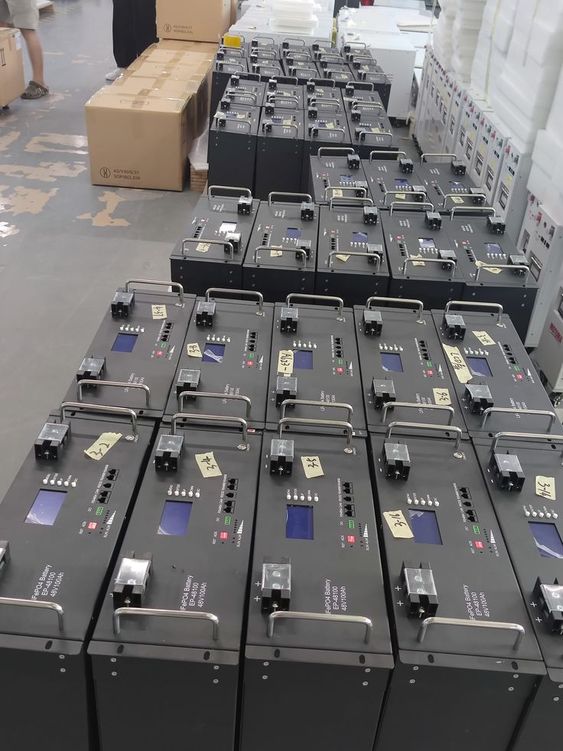There are several types of lithium-ion batteries available for home solar power systems, including lithium iron phosphate (LFP), lithium nickel cobalt aluminum oxide (NCA), lithium nickel manganese cobalt oxide (NMC), and lithium titanate (LTO). Each type of battery has its own unique properties and advantages, so it’s important to consider factors such as energy density, lifespan, cost, and safety when choosing the right battery for your solar system.
Read on below to find the battery is is best suited to your needs.
- Lithium Iron Phosphate (LFP) Batteries
Pros:
- High energy density and long lifespan
- Superior safety and stability compared to other lithium-ion batteries
- Low maintenance and easy to install
- Suitable for both on-grid and off-grid solar systems
- Environmentally friendly and recyclable
Cons:
- Lower specific energy compared to other lithium-ion batteries
- Higher upfront cost compared to lead-acid batteries
- Limited availability and compatibility with some solar inverters
- Lithium Nickel Cobalt Aluminum Oxide (NCA) Batteries
Pros:
- High specific energy and power density, making them ideal for high-performance solar systems
- Long lifespan and low maintenance
- High charging efficiency and fast charging time
- Suitable for high-temperature environments
Cons:
- High cost compared to other lithium-ion batteries
- Limited availability and compatibility with some solar inverters
- Requires advanced battery management system to prevent thermal runaway
- Lithium Nickel Manganese Cobalt Oxide (NMC) Batteries
Pros:
- High energy density and long lifespan
- Lower cost compared to NCA batteries
- Suitable for a wide range of solar systems, from small residential to large commercial
- Fast charging time and high charging efficiency
- Low self-discharge rate
Cons:
- Slightly lower specific energy compared to NCA batteries
- Higher risk of thermal runaway compared to LFP batteries
- Requires careful battery management to prevent overcharging or over-discharging
- Lithium Titanate (LTO) Batteries
Pros:
- High power density and fast charging time
- Long lifespan and low maintenance
- Superior safety and stability, even at high temperatures
- Suitable for high-power solar systems, such as electric vehicle charging stations
Cons:
- Lower energy density compared to other lithium-ion batteries
- Higher cost compared to lead-acid batteries
- Limited availability and compatibility with some solar inverters
- Lower charging efficiency compared to other lithium-ion batteries
In conclusion, choosing the right lithium-ion battery for your home solar power system requires careful consideration of factors such as energy density, lifespan, cost, and safety. Each type of battery has its own unique pros and cons, so it’s important to consult with a professional solar installer to determine which battery is best for your specific needs.

